2023 Fellows
× ![]()
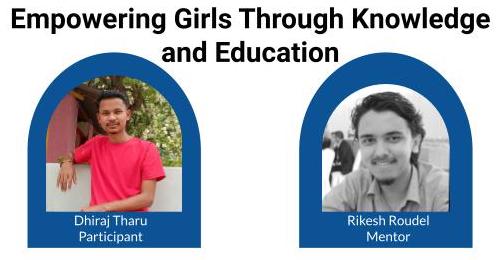
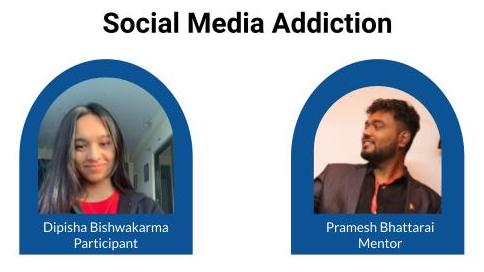
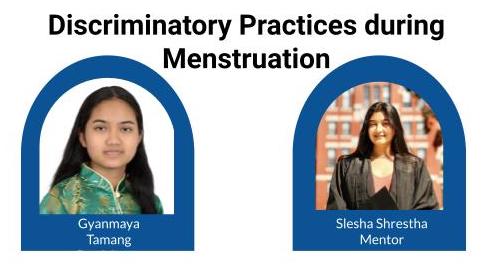
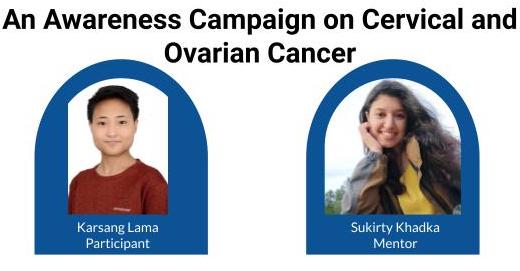
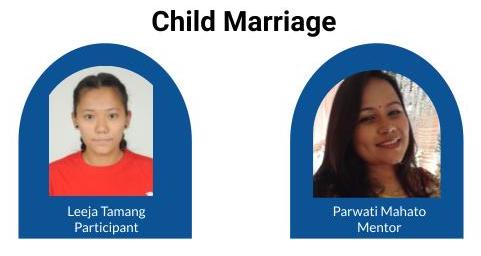
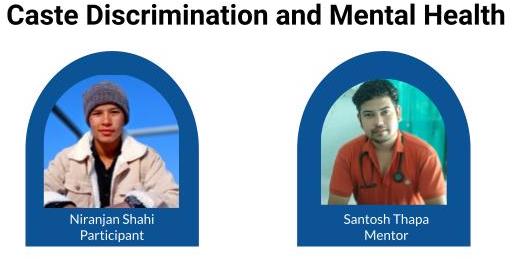
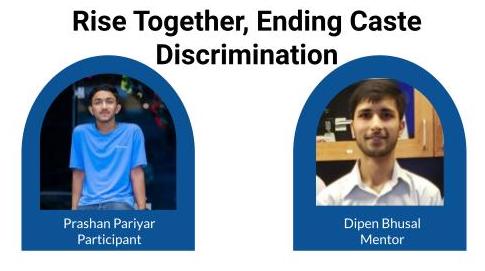
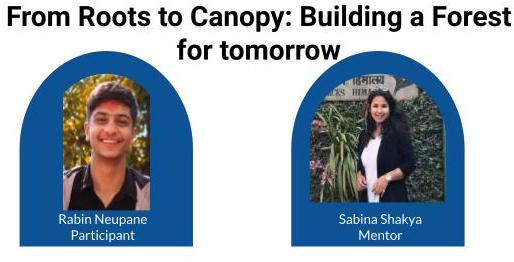
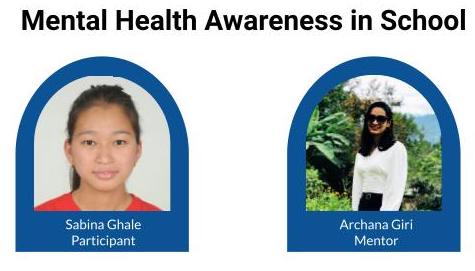
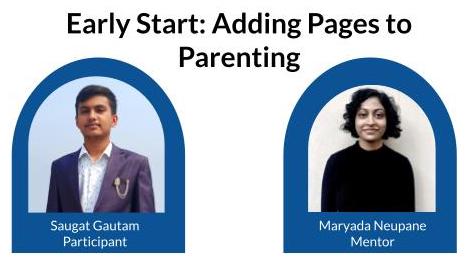
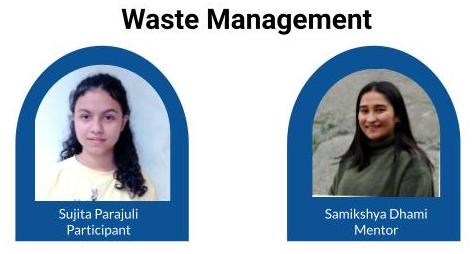

View full presentations here
| Participant | Mentor | Project |
|---|---|---|
| Dhiraj Tharu | Rikesh Poudel | Education for All |
| Dipisha Bishwakarma | Pramesh Bhattarai | Social Media Addiction |
| Gyanmaya Tamang | Slesha Shrestha | Menstrual Hygiene and Justice |
| Karsang Lama | Sukirty Khadka | Cervical and Ovarian Cancer |
| Leeja Tamang | Parwati Mahato | Child Marriage |
| Nirajan Shahi | Santosh Thapa | Caste Discrimination and Mental Health |
| Prashan Pariyar | Dipen Bhusal | Fighting Caste Discrimination |
| Rabin Neupane | Sabina Shakya | From Roots to Canopy |
| Sabina Ghale | Archana Giri | Mental Health Awareness |
| Saugat Gautam | Maryada Neupane | Early Start: Adding Pages to Parenthood |
| Sujita Parajuli | Samikshya Dhami | Waste Management |
| Susan Bhatta | Parikshit Chalise | STEMify Nepal |
 AakarNepal
AakarNepal